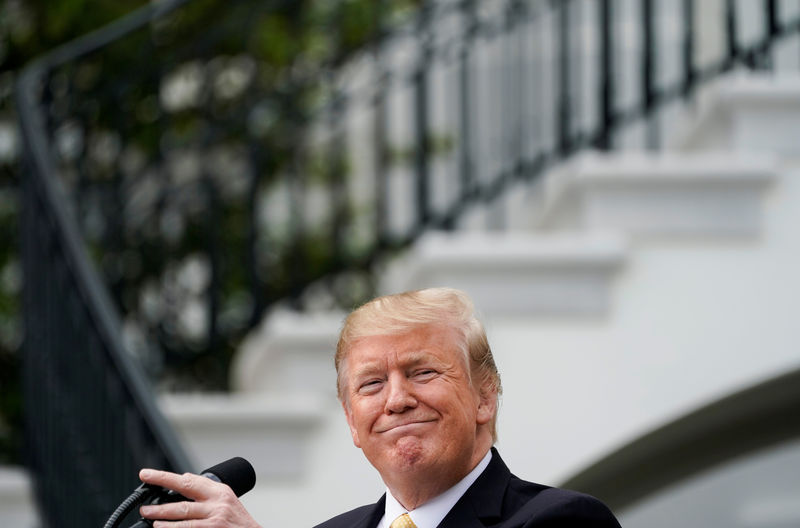By Roberta Rampton and Richard Cowan
WASHINGTON (Reuters) - The Trump administration on Wednesday asked Congress for $4.5 billion in immediate emergency funding, saying a surge in Central American children and families claiming asylum at the U.S. southern border had drained government resources.
The money would come on top of the funding President Donald Trump has redirected to make good on a central pledge of his 2016 election campaign - to build a border wall to stop illegal immigrants - ahead of his looming 2020 presidential race.
Trump's top aides also are quietly courting members of Congress to get behind legislation being drafted to toughen the treatment of young undocumented immigrants detained at the U.S. border with Mexico, while also placing new limits on immigrants who could apply for asylum in the United States.
The emergency funding request would represent a 44% increase in spending for programs that house, feed, transport and oversee record numbers of Central American families seeking asylum and straining capacity at migrant shelters in border cities such as El Paso, Texas, and Las Cruces, New Mexico.
"The situation has become more dire," a senior administration official told reporters on a conference call, speaking on condition of anonymity. "Agencies are literally running out of funds."
Trump earlier this year declared the immigration influx a national emergency, which allowed him to circumvent Congress to redirect more than $6 billion in funding to start building his border wall. His move has been challenged in courts.
Asked why the administration did not redirect wall funding to the pressing humanitarian issues at the border, a second official told reporters that would not be allowed under budget rules.
NEW IMMIGRATION PROPOSAL
Trump threatened to shut down the border last month to stop the surge of migrants, and later raised the specter of a tariff on car imports from Mexico, but later backed off the threats.
He fired several top Department of Homeland Security officials, including Secretary Kirstjen Nielsen.
Now, Trump is considering a new proposal from his senior adviser and son-in-law Jared Kushner that includes border security provisions as well as measures to increase visas for skilled workers and seasonal labor for farms.
To gain traction on immigration legislation, the White House would need the support of more than a handful of Senate Democrats for it to clear procedural hurdles in the Republican-controlled chamber. The Democratic-controlled House of Representatives is likely push back strongly against the still-to-be unveiled initiatives.
Kevin McAleenan, Trump's acting secretary of Homeland Security, met on Tuesday with a small group of Democratic senators in hopes of winning the support of at least some of the politically moderate ones.
It was a follow-up to a meeting that Trump's acting Chief of Staff Mick Mulvaney held a few weeks ago with the senators, who has expressed concerns about the number of migrants arriving at the border.
"They talked about what they want to do," said Senator Jon Tester, who attended Tuesday's meeting in fellow Democratic Senator Dianne Feinstein's office.
Tester said he was awaiting a detailed proposal from the White House - which could come as early as this week - before taking a position.
But Tester expressed reservations. Referring to White House attempts to end a long-standing court settlement known as Flores, which limits the duration immigrants under 18 can be detained by the government, Tester said: "I think it's going to be very tough to change Flores."
"I think that there may some opportunity to send some kids back (to their native countries) if in fact we can determine they're going to safe conditions ... but that's got to be rock-solid," Tester added.
Many of the children seeking U.S. asylum come from Central American countries plagued by high murder rates, gang activity and illicit drug trade.

Meanwhile, the House is expected to advance much different immigration legislation in coming weeks: a bill that would protect from deportation "dreamers," or immigrants brought illegally into the United States by their parents at a young age. The measure would put them on a path to U.S. citizenship if they met certain requirements and could garner significant support from Republicans.